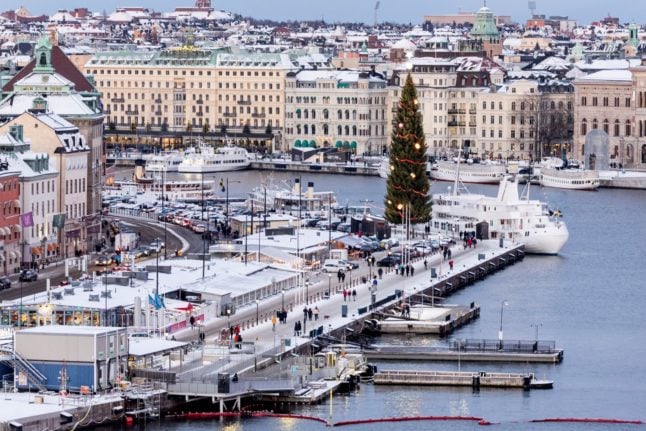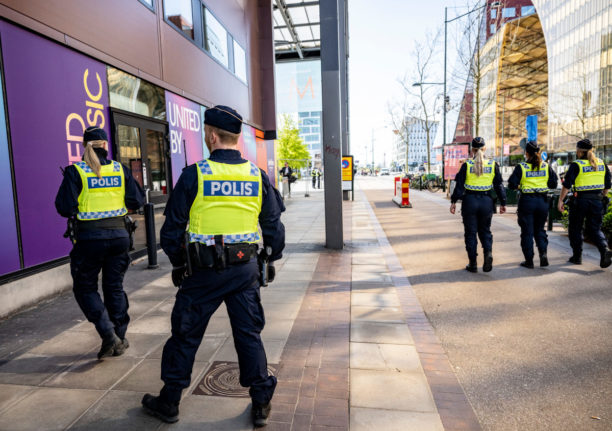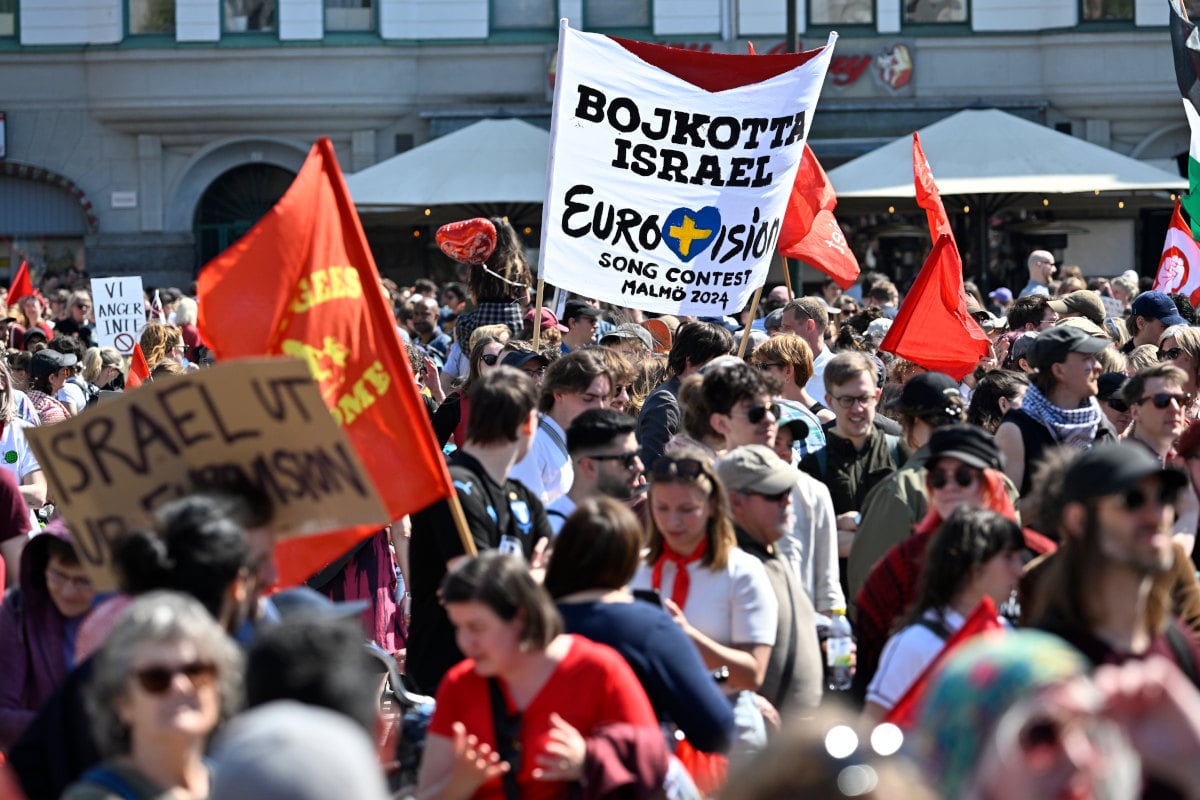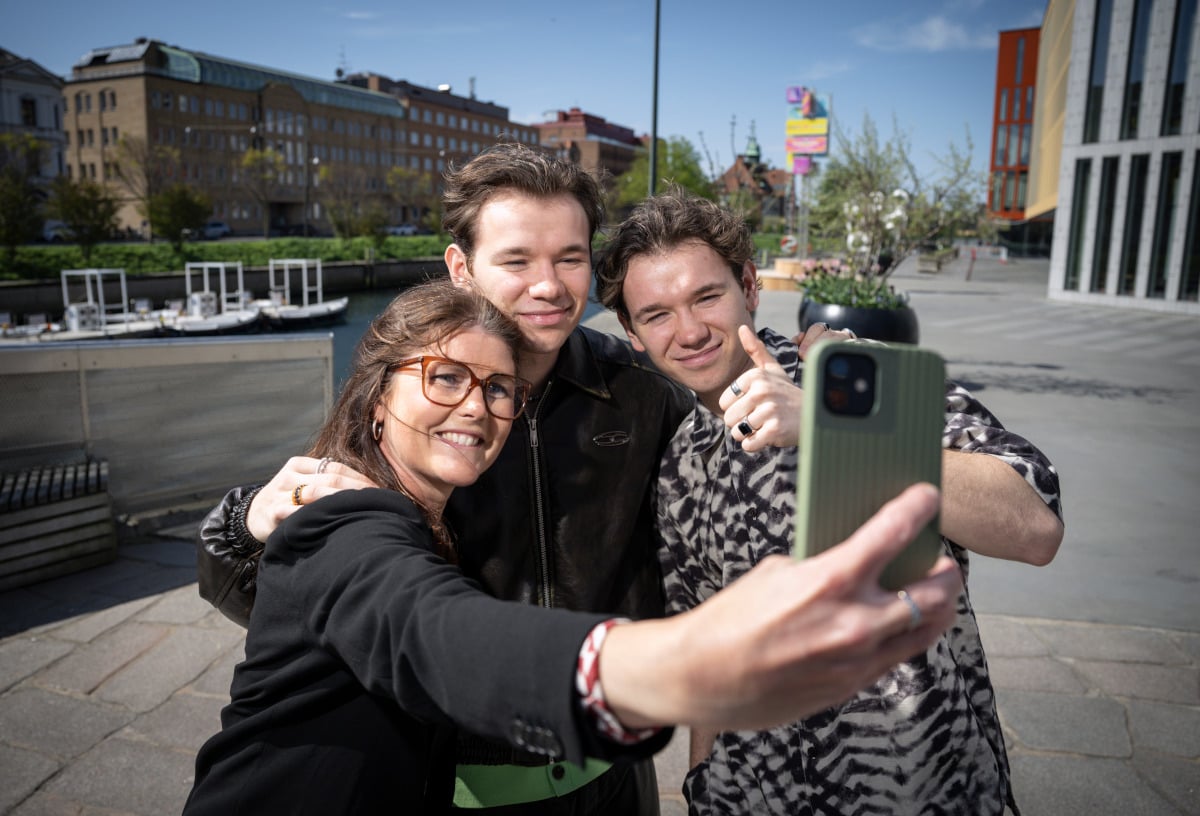New inflation figures presented for November
On December 14th, Statistics Sweden will present the latest consumer price index – or in other words the inflation rate.
After choosing not to hike the key interest rate at its meeting last month, Sweden’s Riksbank central bank will be looking carefully at these figures to make sure inflation remains in check.
The next decision on whether to raise the key interest rate or not won’t be until February, but if inflation doesn’t clearly go down, or if it goes down less than expected over the next few months, it increases the likelihood of a further key interest rate hike in the future.
New law to tighten migration rules for family members
Sweden’s immigration requirements for some family members of foreign residents will be slightly tightened from the start of December.
From December 1st, a residence permit may be refused for a partner or spouse if either the partner in Sweden or the partner wishing to join them is under the age of 21. The current age limit is 18.
Parliament also approved a proposal to scrap a respite which means refugees and people with subsidiary needs for protection have three months before they need to meet the maintenance requirement – a requirement for foreign residents to show they are able to provide for their joining partner.
A rule that gives the Migration Agency the right to grant residence permits to children and some adults if they are subject to “particularly distressing circumstances” has also been changed. Instead, children will be covered by the tougher requirement “exceptionally distressing circumstances”, but the criteria for what counts as exceptionally distressing circumstances should be applied generously for children.
New international Pisa results presented
Results for the OECD’s Programme for International Student Assessment (PISA) will be released on December 5th, where Sweden will see its 15-year-olds compare to students in other countries on a test of maths, reading and science.
This may not sound particularly important, but the Swedish government and authorities will be keeping a close eye on the results, and particularly bad figures for the Nordic country could spark criticism and ultimately reform of the education system.
The 2012 edition of the survey was a wake-up call for Sweden, which experienced a sharp drop in the results of 15-year-old students, pushing them below the OECD average and sparking debate about the country’s schools.
The most recent release of the Pisa ranking in 2018 showed that Swedish schools had improved on a recovery that started with the 2016 edition, with above-average scores in reading, mathematics and science. The ranking is released every four years and December’s release will focus on results measured in 2022.
Nobel Prize ceremony
The glitziest event of the year will kick off in Stockholm on December 10th, when this year’s batch of Nobel Laureates will receive their prizes in a star-studded ceremony.
December 10th is the date of the ceremony each year, chosen because it is the date on which inventor Alfred Nobel died, back in 1896.
The prizes awarded in Nobel’s honour are handed out by the Swedish king at Stockholm Concert Hall from 4.30pm, with a world-famous banquet following at the City Hall at 7pm.
The dinner is high-profile, with the 1,300-strong guest list featuring royalty, top politicians and academics plus international guests. But it’s a cause of excitement and conversation among the general population too, with around one million Swedes (that’s a tenth of the country’s entire population) expected to follow along from home by tuning in to the live broadcast on SVT.
There’s always interest in the seating plan, released a few days before, and the menu, kept secret apart from some hints dropped in press releases.
What’s not a secret, of course, is who will be winning the coveted prizes, which were awarded back in October.
Sweden’s version of the Oscars
The nominations for the Guldbagge awards, Sweden’s version of the Academy Awards in the US, are announced on December 13th, although to find out the winner you will have to wait for the award ceremony on January 15th.
Make sure you’ve fitted your winter tyres
Swedish law states that all cars must be equipped with winter tyres between December 1st and March 31st if the weather conditions require it. If your car doesn’t have them or if they are not up to scratch (a tread depth of at least three millimetres), you risk a fine of 1,200 kronor.
- READ MORE: Sweden’s winter driving rules
Winter tyres radically decrease the risk of skidding and improve a vehicle’s overall braking capacity on slippery surfaces, reducing the risk of accidents. In general, studded winter tyres are better suited for icy roads or on surfaces with hard-packed snow, while stud-free tyres work better on roads with soft snow.
If you have studded tyres you will need to get them changed back by April 15th – the last day on which they are permitted on Swedish roads (and some roads ban them all year round due to noise pollution).
Christmas festivities kick off
Finally, December in Sweden means Christmas is on the horizon. You may already have noticed the smell of saffron wafting through the streets and may even have sampled a julbord already.
The first Sunday of Advent this year is December 3rd, after which it will be socially acceptable to put up your Christmas decorations (although many people have already started).
It also signals the start of an entire month of festivities, with each Sunday between the 3rd and the 24th dedicated to cosy Christmas activities, as well as St Lucia’s Day on December 13th – celebrated, of course, with saffron-scented lussekatter – here’s a recipe.
If you’re looking for julbord suggestions for the coming month, you can check out our guides for the best buffets in Stockholm, Gothenburg and Malmö.
Herring and meatballs not really your thing? Here are 2023’s best Christmas markets in Sweden to get you in the Christmas spirit instead.
Never celebrated a Swedish Christmas before? Here’s a guide from The Local’s archives.
Christmas holidays
On the topic of Christmas, Sweden’s schools generally break up for the festive season only a few days before Christmas Eve, with schools in Stockholm, Gothenburg and Malmö all breaking up on December 22nd, giving families just enough time to travel to see grandparents, cousins and the like before the big celebrations on December 24th.
Christmas post dates
Some deadlines for sending Christmas cards and gifts to friends, family and loved ones outside of Sweden have already been and gone, with Postnord’s Christmas cut-off point for economy letters outside the EU on November 23rd. Here are the rest of the Christmas postal deadlines.
Christmas tree flights
The Swedish Armed Forces (Försvarsmakten) arranges for some of its fighter jets to fly in a Christmas tree-shaped formation across the country each December as a way of spreading festive cheer among the public.
The last flight with the current jet, SK 60, will take place over Mälardalen and Östergötland on December 18th, with further flights planned on December 11th in Blekinge and Norrbotten, December 12th in Skaraborg, as well as a helicopter flight on December 13th – the location of that flight has not yet been announced.
Polar night descends on far north of Sweden
Just before lunch on November 30th, the sun sets on Treriksröset, with it not coming up above the horizon again until January 12th. The polar night will extend south throughout early December, reaching Kiruna on December 10th.
The boundary for polar night is just above the northern Arctic Circle at 67 degrees north.
Days begin to get longer again
An especially important date for those living in the Arctic Circle (and those elsewhere in Sweden who miss the sunlight) is the 22nd of December, the shortest day of the year.
After this date, days begin to lengthen, with more sunlight per day for those areas of the country with sunlight at this time of year.
Geminid meteor shower over Sweden
The Geminid meteor shower regularly occurs over Sweden in December, with this year being no exception.
They often appear in the constellation Gemini – hence the name – but can appear almost anywhere in the night sky from early evening.
You may have already spotted them in Sweden from as early as November 19th, but they will get more intense until they peak around December 13th-14th, before disappearing around Christmas.





 Please whitelist us to continue reading.
Please whitelist us to continue reading.
Member comments